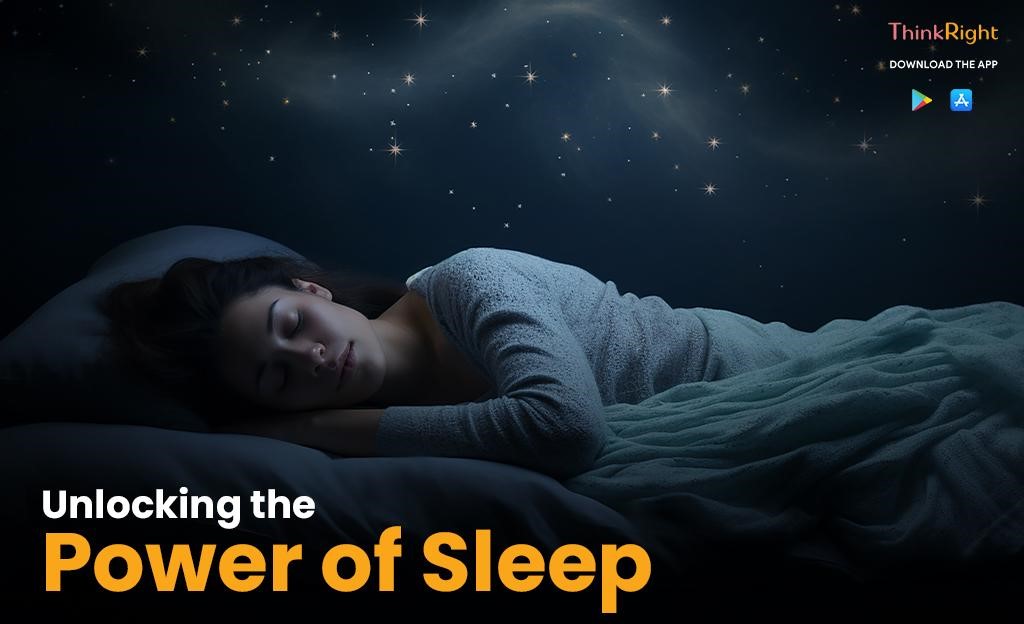Get rid of sleep anxiety and insomnia by unleashing the power of a restful night’s sleep. Discover effective strategies to overcome sleep-related issues and achieve a peaceful and rejuvenating sleep experience.
Lack of quality sleep can impact your physical, mental, and emotional well-being, making it crucial to prioritize restorative rest. This article will explore practical techniques and lifestyle changes that can promote deep sleep, such as creating a relaxing bedtime routine, optimizing your sleep environment, adopting healthy sleep habits, and managing stress levels.
By implementing these sleep-enhancing practices, you can banish sleep anxiety and insomnia, and wake up feeling refreshed and revitalized every morning.

Credit: healyournervoussystem.com
Understanding Sleep Anxiety And Insomnia
Sleep anxiety and insomnia are two common sleep disorders that can greatly impact your quality of life. So, what exactly are they and what is the link between them?
What Is Sleep Anxiety?
Sleep anxiety refers to the feeling of fear, worry, or tension that prevents you from falling asleep or staying asleep throughout the night. It is often characterized by racing thoughts, restlessness, and an overall inability to relax. Sleep anxiety can be caused by external stressors, such as work or personal issues, as well as internal factors, such as an overactive mind or a history of trauma.
What Is Insomnia?
Insomnia, on the other hand, is a sleep disorder characterized by difficulty falling asleep, staying asleep, or both. It can be acute (short-term) or chronic (long-term), and it may be caused by a variety of factors, including underlying medical conditions, medication side effects, or lifestyle choices.
The Link Between Sleep Anxiety And Insomnia
Sleep anxiety and insomnia often go hand in hand. While sleep anxiety can lead to insomnia, the inability to sleep due to insomnia can also exacerbate feelings of anxiety and create a vicious cycle. Treatments for sleep anxiety and insomnia may include cognitive-behavioral therapy, relaxation techniques, medication, or a combination of approaches tailored to the individual.

Credit: www.mindsethealth.com
Causes And Effects Of Sleep Anxiety And Insomnia
Several common causes contribute to sleep anxiety and insomnia. Stress, a major culprit, can trigger both conditions. High levels of stress hormones can disrupt the body’s natural sleep-wake cycle, making it challenging to fall and stay asleep. Lifestyle factors such as excessive alcohol consumption, caffeine intake, and irregular sleep schedules can also lead to sleep anxiety and insomnia. Mental health conditions like depression and anxiety disorders are closely associated with sleep issues. Physical health problems, including chronic pain, respiratory disorders, and hormonal imbalances, can disturb sleep patterns as well.
Sleep anxiety and insomnia can have detrimental effects on health. The persistent lack of sleep can weaken the immune system, making individuals more susceptible to illnesses and infections. It also increases the risk of developing chronic conditions like heart disease, diabetes, and obesity. Sleep deprivation negatively affects cognitive function, leading to difficulties in concentration, memory, and decision-making. Additionally, it can contribute to mood disorders, irritability, and diminished overall well-being.
Strategies And Techniques For Overcoming Sleep Anxiety And Insomnia
Achieving a restful night’s sleep is essential for overall well-being and productivity. Establishing a bedtime routine can support a healthy sleep pattern. This routine may involve activities such as reading a book, listening to calming music, or practicing relaxation techniques.
Creating a sleep-friendly environment is crucial. The bedroom should be cool, dark, and comfortable, with minimal noise and distractions. Use blackout curtains, earplugs, or a white noise machine if needed.
Practicing relaxation techniques like deep breathing, meditation, or guided imagery can help reduce anxiety and promote relaxation before sleep. These techniques can help quiet the mind and prepare the body for rest.
Implementing cognitive-behavioral therapy (CBT) has shown effectiveness in addressing sleep insomnia and anxiety. By identifying and challenging negative thoughts or beliefs around sleep, individuals can reframe their mindset and improve sleep quality.
In severe cases, exploring medical interventions under the guidance of a healthcare professional may be necessary. Medications and therapies can be considered as options to manage chronic insomnia or sleep anxiety.

Credit: www.amazon.com
Frequently Asked Questions For Get Rid Of Sleep Anxiety And Insomnia: Unleash The Power Of A Restful Night’s Sleep
How Do I Stop Anxiety And Insomnia?
To alleviate anxiety and insomnia, follow these strategies effectively:1. Establish a routine sleep schedule to enhance sleep quality. 2. Engage in relaxation techniques, such as deep breathing exercises, meditation, or progressive muscle relaxation. 3. Regular exercise promotes better sleep and reduces anxiety.
4. Limit caffeine and avoid stimulating activities close to bedtime. 5. Seek professional help if symptoms persist to explore treatment options.
How Do You Relieve Sleep Anxiety?
To relieve sleep anxiety, try deep breathing exercises, progressive muscle relaxation, and creating a calm sleep environment. Avoid caffeine, screens, and stimulating activities before bed. Stick to a consistent sleep schedule and practice relaxation techniques like meditation or yoga. Seek help from a healthcare professional if needed.
How Do You Break An Insomnia Anxiety Cycle?
To break an insomnia anxiety cycle: establish a regular sleep schedule, create a relaxing bedtime routine, avoid stimulants and electronics before bed, practice relaxation techniques like deep breathing or meditation, and seek professional help if needed.
How To Cure Insomnia In 12 Minutes?
To cure insomnia in just 12 minutes, try practicing deep breathing exercises. Focus on your breath and count each inhale and exhale. This technique helps calm the mind and relax the body, improving your chances of falling asleep quickly.
Conclusion
Incorporating these strategies into your bedtime routine can make a significant difference in tackling sleep anxiety and insomnia. By prioritizing relaxation techniques, creating a comfortable sleep environment, and adopting healthier lifestyle habits, you can unleash the power of a restful night’s sleep.
Remember to evaluate and customize these tips to suit your unique needs and make sleep your ultimate ally for overall well-being. Take action today and experience the rejuvenating benefits of a good night’s sleep.

